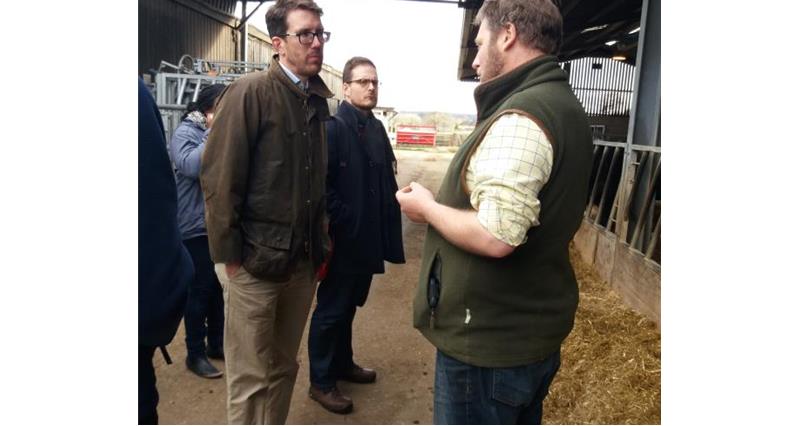To re-inforce this message to Government, the NFU invited Defra’s Senior Brexit team to visit signatories business to see first-hand the concerns and challenges they face.
Natures Way Foods (NWF), based in West Sussex, is privately owned and is a leading manufacturer of fresh convenient food supplying prepared salads, prepared fruit, coleslaw, potato salad, food to go and dressed salads to some of the UK largest supermarkets and foodservice companies.
Access to a tariff free trade is vital for NWF’s complex and fast moving supply chain. Dealing with a seasonal perishable product means time is of the essence to ensure consumers are able to purchase fresh, quality produce at an affordable price. It is vital for a business operating in the FMCG market that competent, reliable labour is available to deliver the vast range of products NWF manufacture for the UK market.
Access to this workforce is of critical importance to both the on farm labour requirements, as well as workers within the three NWF factories as the majority are mainly from European countries.
The NFU have been calling on Government to implement a seasonal agricultural permit scheme to be in place this year on a trial base to ensure workers are available to harvest and pack 2017 crops.
Defra then travelled to NFU member Steve Connisbee’s livestock farm, near Guildford. The aim was to stress the need for a competent Domestic Agricultural Policy, availability of labour and access to export markets.
The majority of migrant labour working on farms tends to be focused on horticulture and poultry; however we mustn’t forget that other farms such as dairy and livestock do also employ workers from Europe. Therefore access to this workforce also is of importance across all commodity sectors.
Brexit gives the UK a real opportunity to form a domestic agricultural policy which is simple, workable and flexible which allows farmers to be competitive on a global market.
The UK farming industry will still want to trade with the European Single Market, and to do this the UK will need to be flexible in legislation which allows farmers to still meet the requirements of the EU market, however Steve stressed that the UK must not allow for cheaper imports flooding the UK market and hindering the competitiveness of UK agriculture. Consumption of red meat is not on the increase, so if import quotas where put in place higher than consumption volumes, this would have devastating implications to UK agriculture.
Defra found the day extremely useful and gained a great deal of insight of how complex fast moving supply chains require urgent solutions.
Defra recognised that the use of the Red Tractor logo is Britain’s USP both for their export potential but also for the UK’s own market. British farmers and the Red Tractor logo have a great story to tell and Government need to capitalise on this to get the best deal for UK agriculture during any trade negotiation.